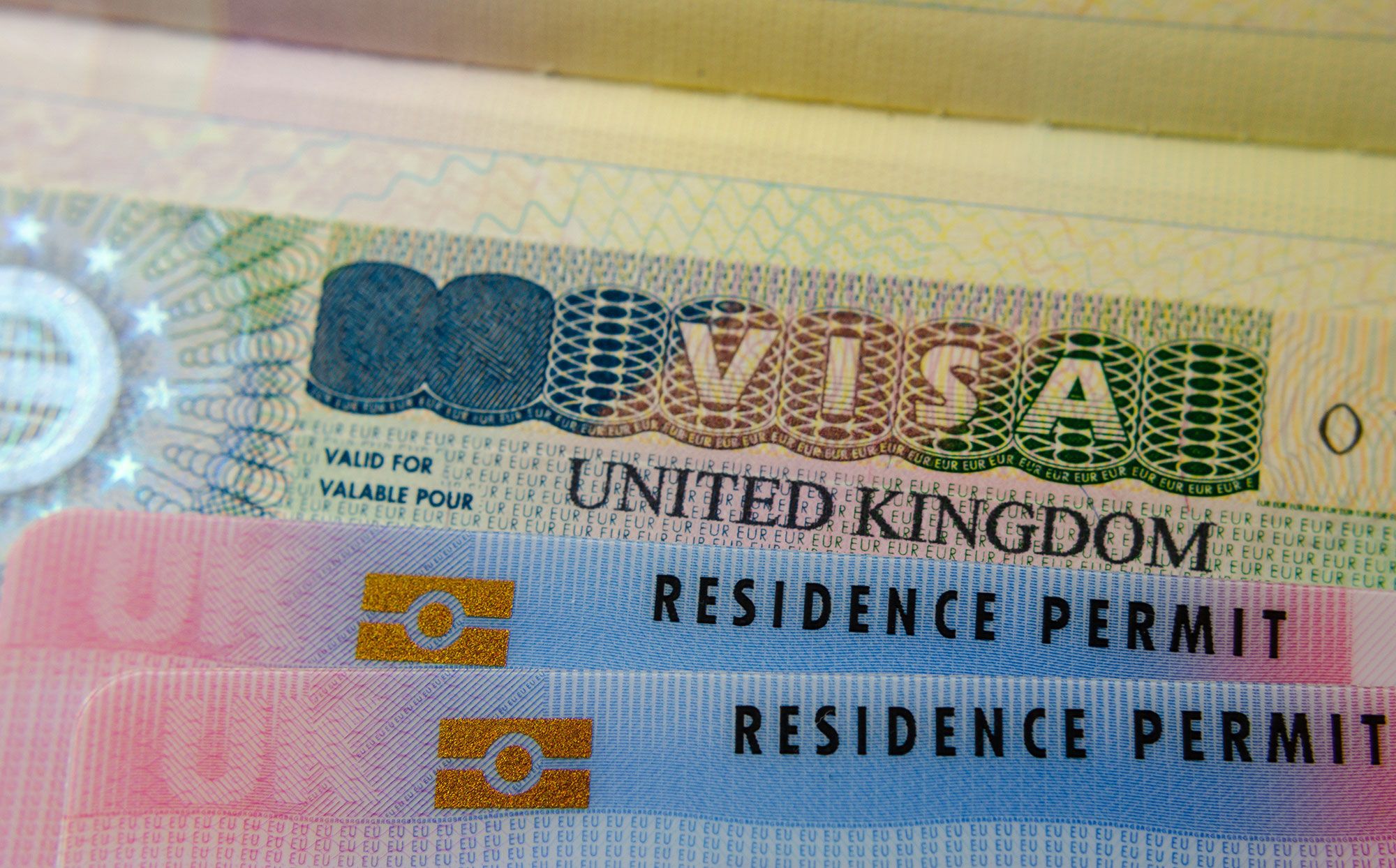Why does my BRP card expire on 31 December 2024?
For many years now, successful Indefinite Leave to Remain applicants in the United Kingdom have been issued with Biometric Residence Permits (commonly known as BRP cards) with the validity date as 31 December 2024. It has also been observed that nowadays, those applicants, who are being granted limited leave to remain for a period beyond this date, are also being issued with BRP cards which are due to expire on 31 December 2024. Why the Home Office issues BRP cards with this set date?
It has been explained by the Home Office that in the past, under EU law, it was a requirement to restrict the validity of BRP cards which do not incorporate the latest encryption technology. The Home Office vowed to introduce BRP cards in new format this year which will reflect the exact period of grant as confirmed in the approval later. So far, this has not been the case.
According to the information currently available on GOV.UK website: “You do not need to tell UKVI if your BRP expires on 31 December 2024 but you have leave to stay longer. UKVI will update their information on how to update your BRP in early 2024. You do not need to do anything and your immigration status will not be affected.”
In the meantime, BRP card holders can check and prove their immigration status using the online service: www.gov.uk/prove-right-to-work. As an alternative, employers can obtain evidence of their employees’ immigration status in the UK online: https://www.gov.uk/view-right-to-work.
If you have concerns about your UK immigration status, do not hesitate to contact our immigration team.
Please note that requirements may vary from case to case based on the nuances of your situation, and the information on this page is not intended to replace legal advice.
Home Office Compliance Visits back on
The Home Office compliance visits aim at checking whether an organisation has the appropriate HR and recruitment systems and procedures in place to be able to monitor the migrant workers and ensure that the organisation’s duties and obligations as a Licensed sponsor have been fulfilled.
Such visits can be conducted by the UK Visas and Immigration before or after the Sponsorship License has been granted and can be announced or unannounced.
The visits were suspended during the first lockdown and then again in December 2020 when the United Kingdom entered second national lockdown due to the COVID-19 outbreak. As the UK Government has started to ease the restrictions, the Home Office has now announced that the compliance visits will shortly be resumed.
The prospective and existing Licensed sponsors are aware that it is important to comply with the Home Office’s requirements since noncompliance may lead to the License application being refused or existing License being suspended or revoked. This, essentially, could lead to inability to offer sponsorship to migrant workers.
With reference to the most recent statistics published by the Home Office, 523 Sponsorship Licenses were suspended between Q4 2019 and Q3 2020. This figure was considerably lower in comparison with the previous 12 months' period, largely due to the pandemic. The Compliance Officers are becoming more rigorous, as such, we remind all Licensed sponsors about the importance of complying with their duties and obligations and being up to date with the recent changes in the compliance procedure.
At Chan Neill Solicitors we regularly assist organisations with their Sponsorship License matters. We conduct mock Compliance Visits and assist the organisations during the Home Office visits. For more information please do not hesitate to contact our office.
Don't Fall Prey to Telephone Scams!
1. Are there a large number of enquiries for phone scams among international students? Have you or any of your fraud lawyers take a case of telecoms fraud? Could you please enumerate and talk about it briefly?
-
My firm does receive some enquiries in respect of telecoms fraud/scams from the Chinese community. It usually encompasses a mixture of email, telephone and WeChat/Whatsapp scams. The types of scam we encounter are typically payment fraud and currency exchange fraud/money laundering.
-
The usual tactics for the fraudster are to pretend to be a trusted third party, for instance HMRC, the Court, the Chinese Embassy, or your bank etc.
-
HMRC – the fraudster may claim there is an issue with your tax refund or an unpaid tax bill and ask you for your personal information including your National Insurance Number. There is another scenario where people are being called and a pre-recorded message purportedly from HMRC, informs them that they owe money and that they are urgently required to call a separate telephone number to halt further action being taken against them. Upon calling the number, the consumer is given a long reference number and are threatened that “if you don’t transfer the money you owe us, it could lead to your arrest.”
-
The Court – the fraudster may pretend to be a court clerk and claim there is a criminal proceedings against you and ask you to pay immediately in order to remove the charges.
-
Bank – – fraudster would call and claim himself to be from your bank, saying there’s a problem with your card or account. They may ask for your account, card and PIN details. They may also advise transferring your money to a secured account to protect the deposits.
I understand the main concern for victim is how to get their monies back. You might be able to get your money back after you’ve been scammed but it would be very difficult. What you should do, and whether you’ll get a refund, depends on what happened.
Chan Neill Solicitors have acted for victims including international companies and international students on a larger scale.
-
In respect of international students, our firm had received enquiries where for example student A had been helping a “friend” of hers who they became acquainted with on WeChat. Student A then allowed the friend to use her personal bank account as a conduit to transfer monies (cash deposit) to different third parties’ account, without knowing the source of the funds and the purpose of the transfers. Her account was then subject to an Account Freezing Order applied by the police authorities. She did not know “helping a friend” might be illegal and subject to fraud. It started with a WeChat invitations and a phone call. Our firm was successful in negotiating an out-of-court settlement with the police authority.
-
In respect of International Companies, we have acted for overseas companies to recover funds they remitted to the UK bank which was opened by email scammers. Funds can be recalled successfully after negotiations with the banks.
2. In the case we’ve interviewed before, many international students said that after they were defrauded of money, both their home-country’s police and British police cannot help and said they have no authority over this issue, so is there any blind spot of legal supervision? What the blind spot is? We understand many international students have fallen victim to telecoms scams and were defrauded of money. There are practical difficulties which will be explained further below: –
-
Personal information of the scammer – In order to issue a court claim, you will need to identify the name and address of the scammer in order to make a claim against him/her. Whether you can identify the scammer’s name and address will be crucial for issuing a claim.
-
Jurisdiction – Telecoms scams and phishing attacks can take place on a global scale without regard to jurisdictional boundaries. The obstacles include differing laws and standards of evidence to prosecute offenders, and the need for mutual cooperation to take effective cross-jurisdictional action. It would be difficult for Police to prosecute an individual in a different jurisdiction.
-
Costs – Whether legal costs are proportionate compared to the claim amount.
-
Tracing – whether the monies are still in the scammer’s bank account, if not where did the money go? It is very difficult to trace funds if they have been transferred to different parties in different bank accounts. This is usually the next step scammer do to make it even harder to trace.
3. Is there any relative legal provisions does the British government have for this issues to protect international student?
-
The Fraud Act 2006 (the Act) came into force on 15 January 2007 and applies in England, Wales and Northern Ireland.
-
The Act repealed the following offences:
-
Theft Act 1968
-
Section15 (obtaining property by deception);
-
Section15A (obtaining a money transfer by deception);
-
Section 16 (obtaining a pecuniary advantage by deception).
There may be other ways for international students claim their monies back.
Again this can only be considered if you know the true identity of the fraudster.
4. What should international students do if they encounter similar problems, could you provide some suggestions to us?
The likely scenarios where an international student may encounter are: –
you’ve used your debit card and more money was taken than you expected; or
you’ve made a payment to a scammer from your account.
We recommend international students to take the following steps:
-
Contact the police immediately by calling 101 if:
-
the scammer is in your area
-
you’ve transferred money to the scammer in the last 24 hours
-
If you feel threatened or unsafe call 999.
-
Gather all the details of the scam and write to your bank immediately and explain clearly what had happened and ask whether you can stop the payment or get a refund.
-
report the issue to Action Fraud , the UK’s national reporting centre for fraud. Action Fraud can get the National Fraud Intelligence Bureau to investigate scams. They’ll also give you a crime reference number, which can be helpful if you need to tell your bank you’ve been scammed.
If you are not happy with how the bank deals with your claim, you may consider instructing solicitors to assist as we are more experienced in handling these situations. It may also be worthwhile to instruct solicitors in the beginning as we can ensure consistency and clarity over the steps and representations made. In summary for this interview, international students are advised: –
-
Not to give out personal information and banking details on phone or email.
-
If you’ve already responded to a suspicious message or provided personal/banking details, contact your bank immediately to stop any activity, ask for a new card, change the security password/pin number if necessary.
-
If monies has been sent, then this maybe the time to consider looking for help from solicitors.
We will be able to assess the scenario and see whether there are other legal procedures that maybe suitable to take depending on the circumstances. Possible steps may include: –
-
Raise a formal complaint with the bank
-
Financial Ombudsman complaint
-
Regional or Global Freezing Injunction
-
Go to court


